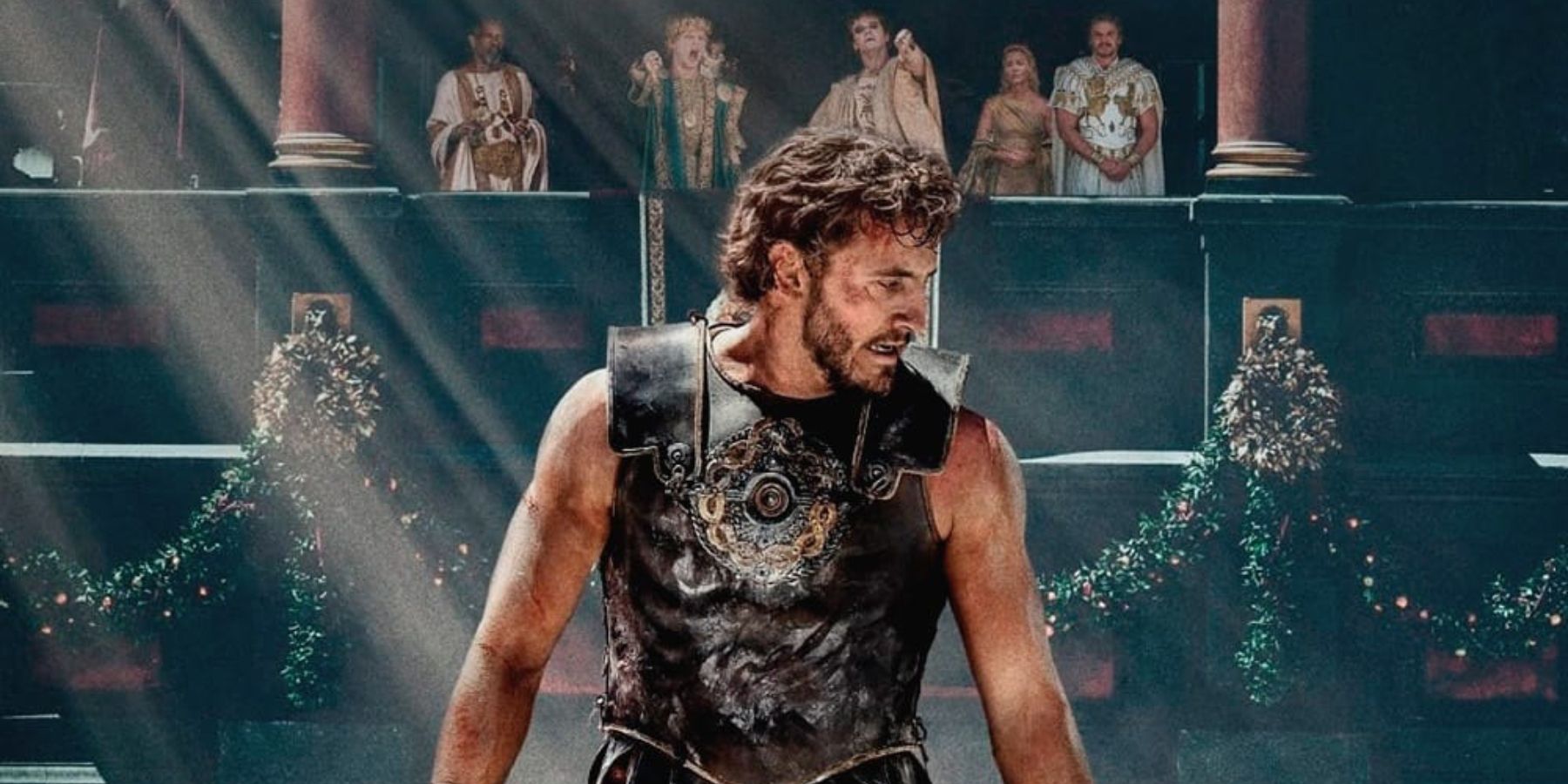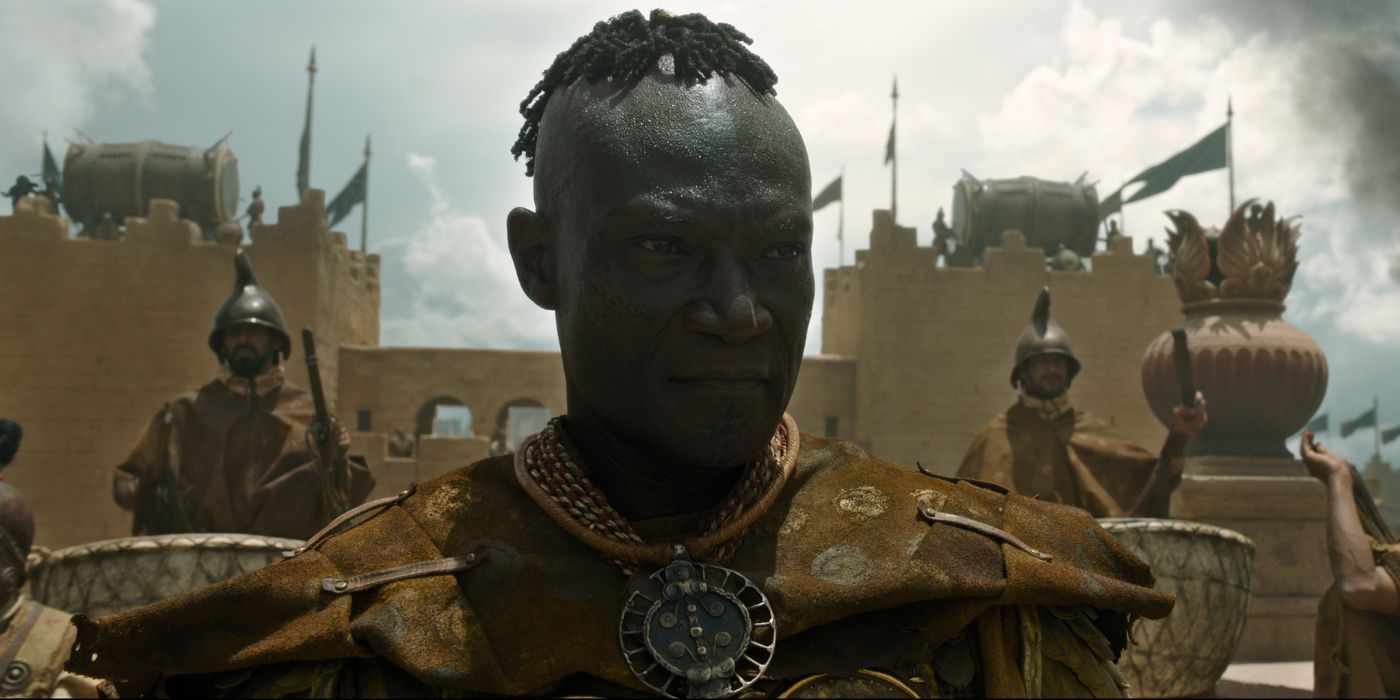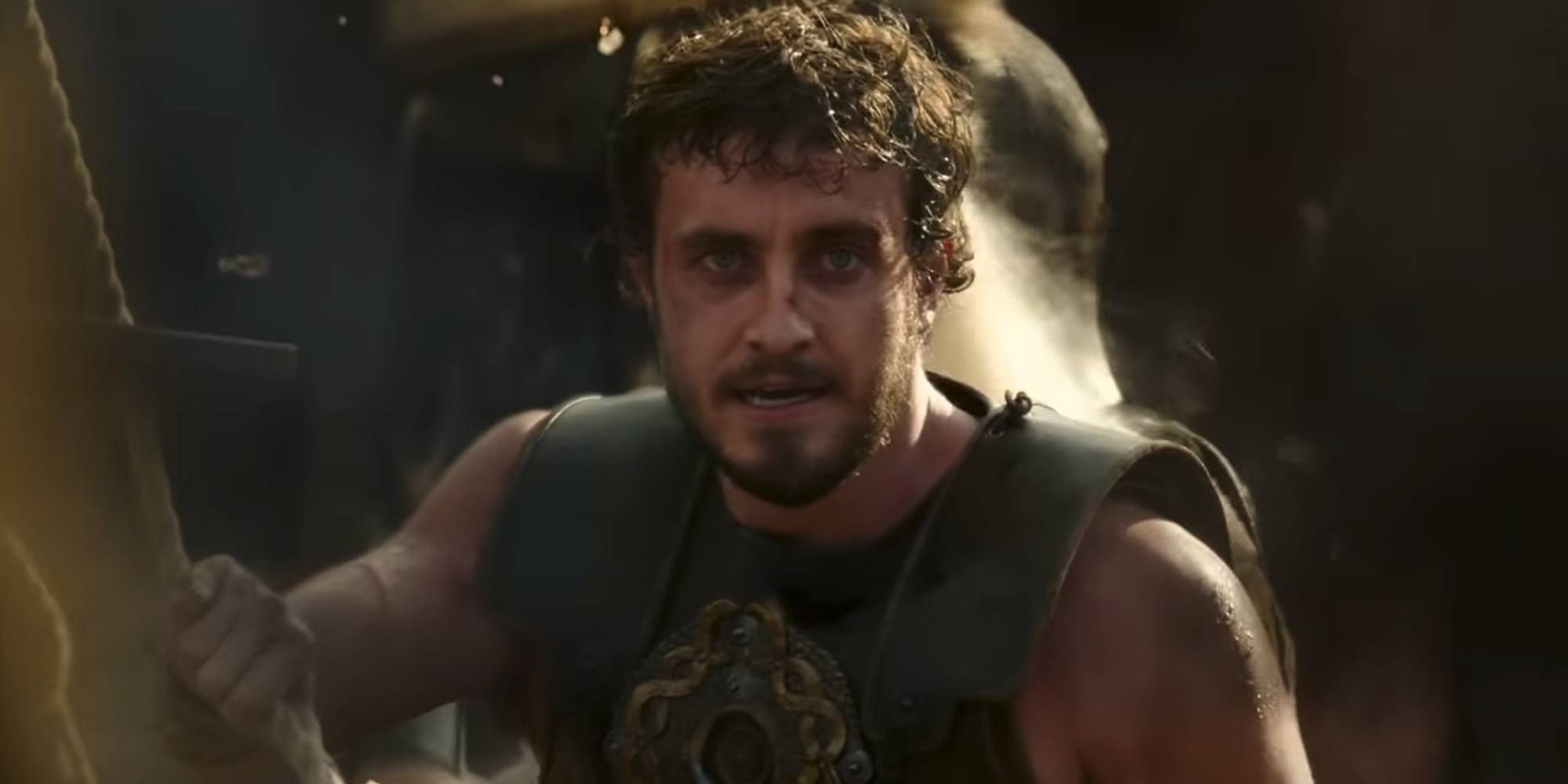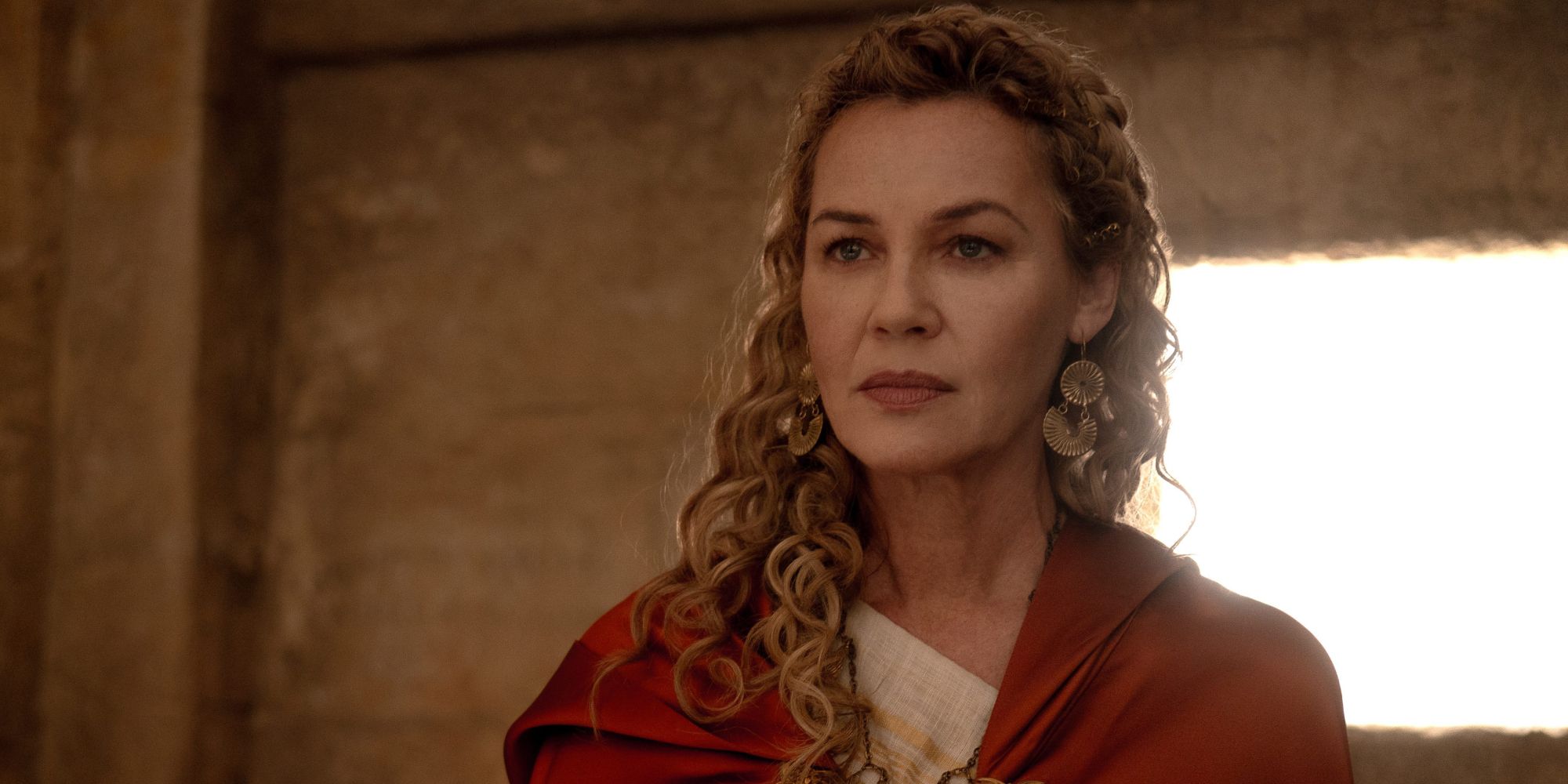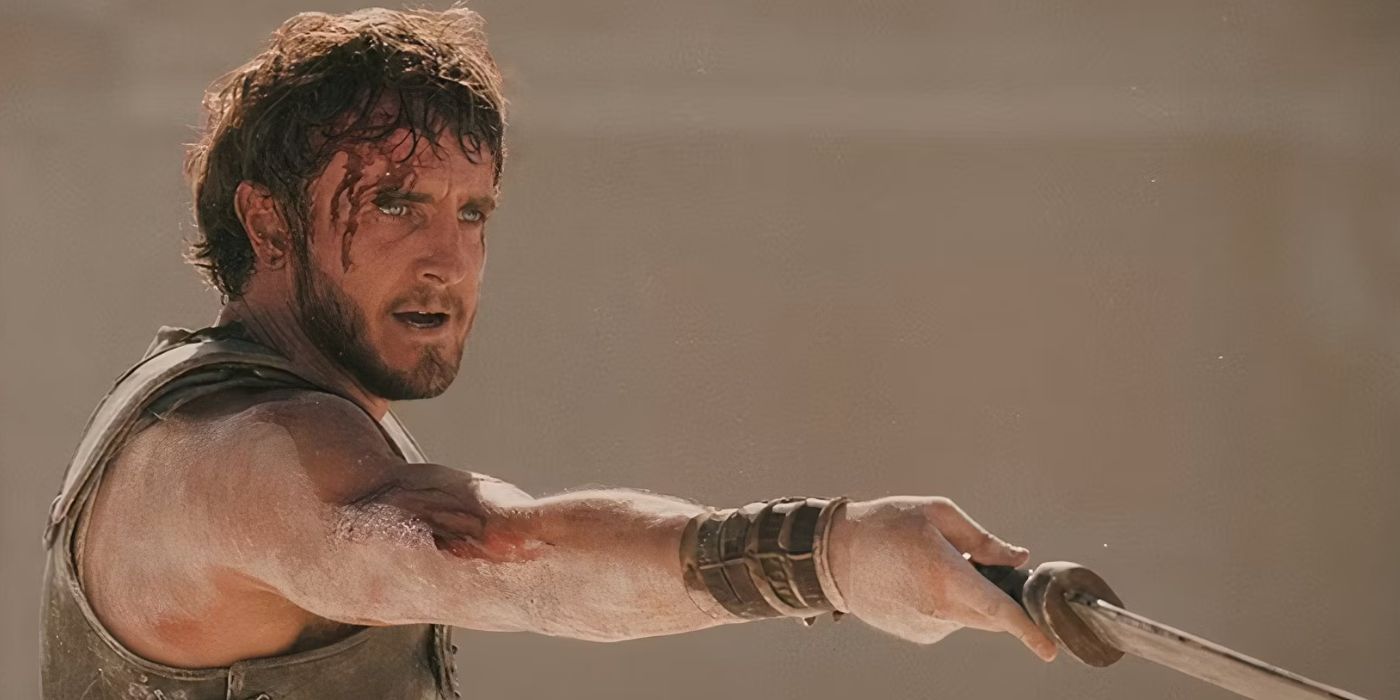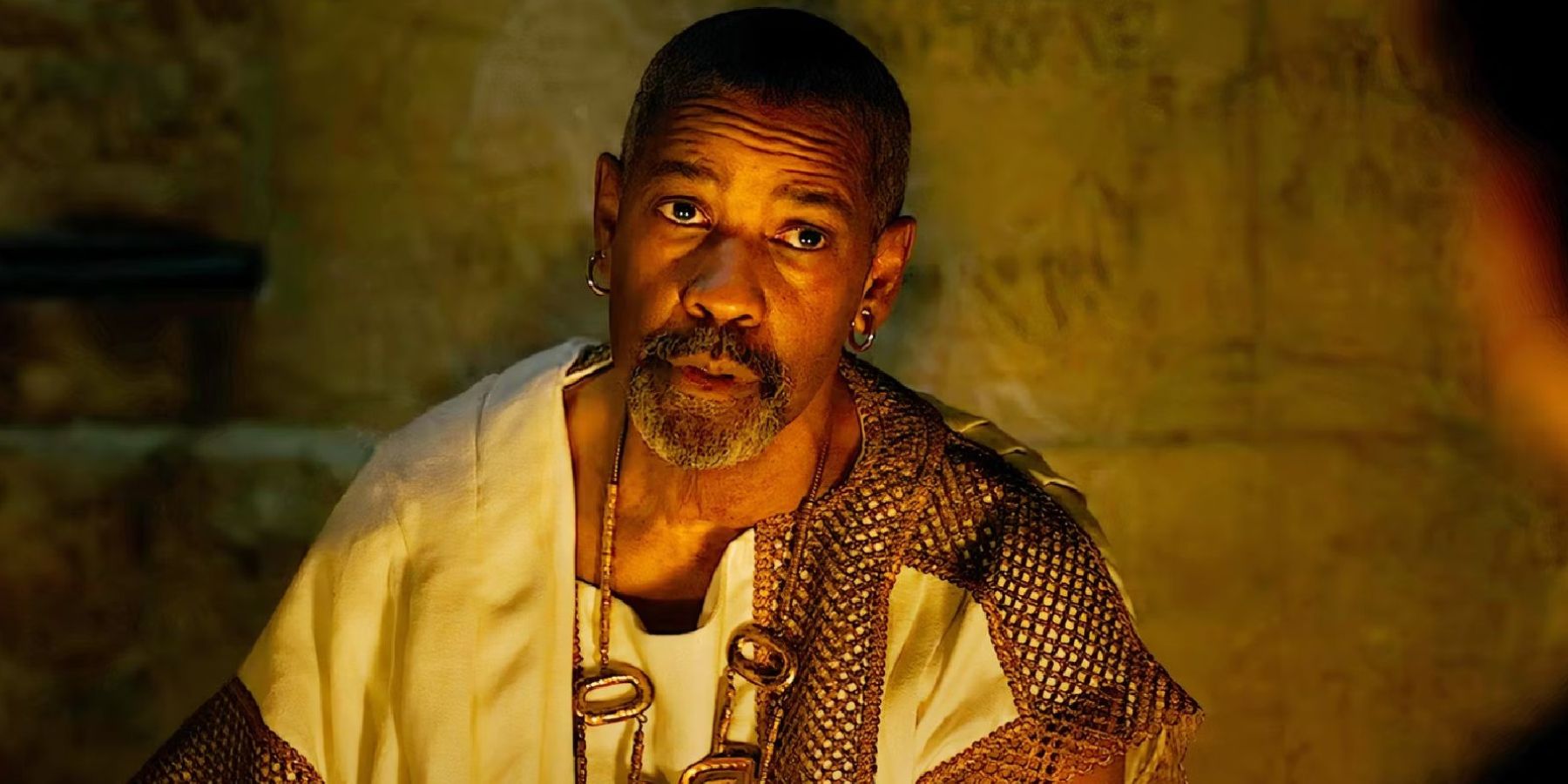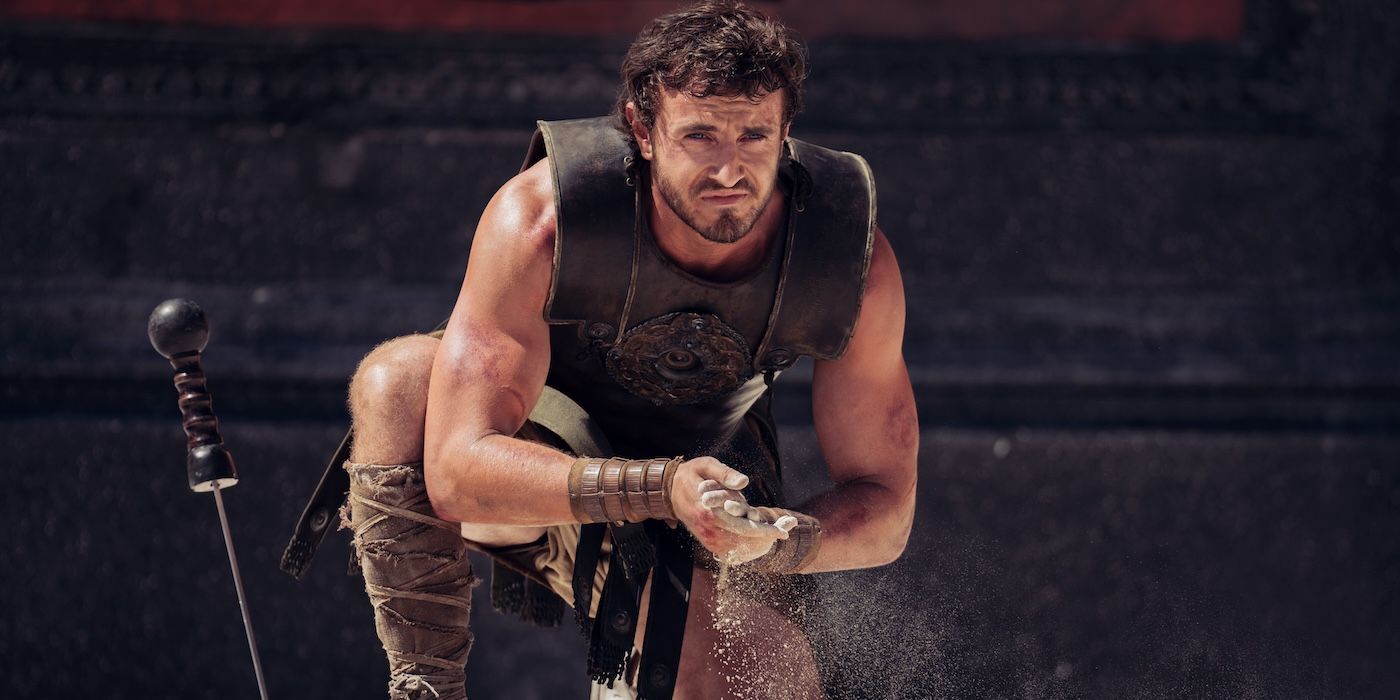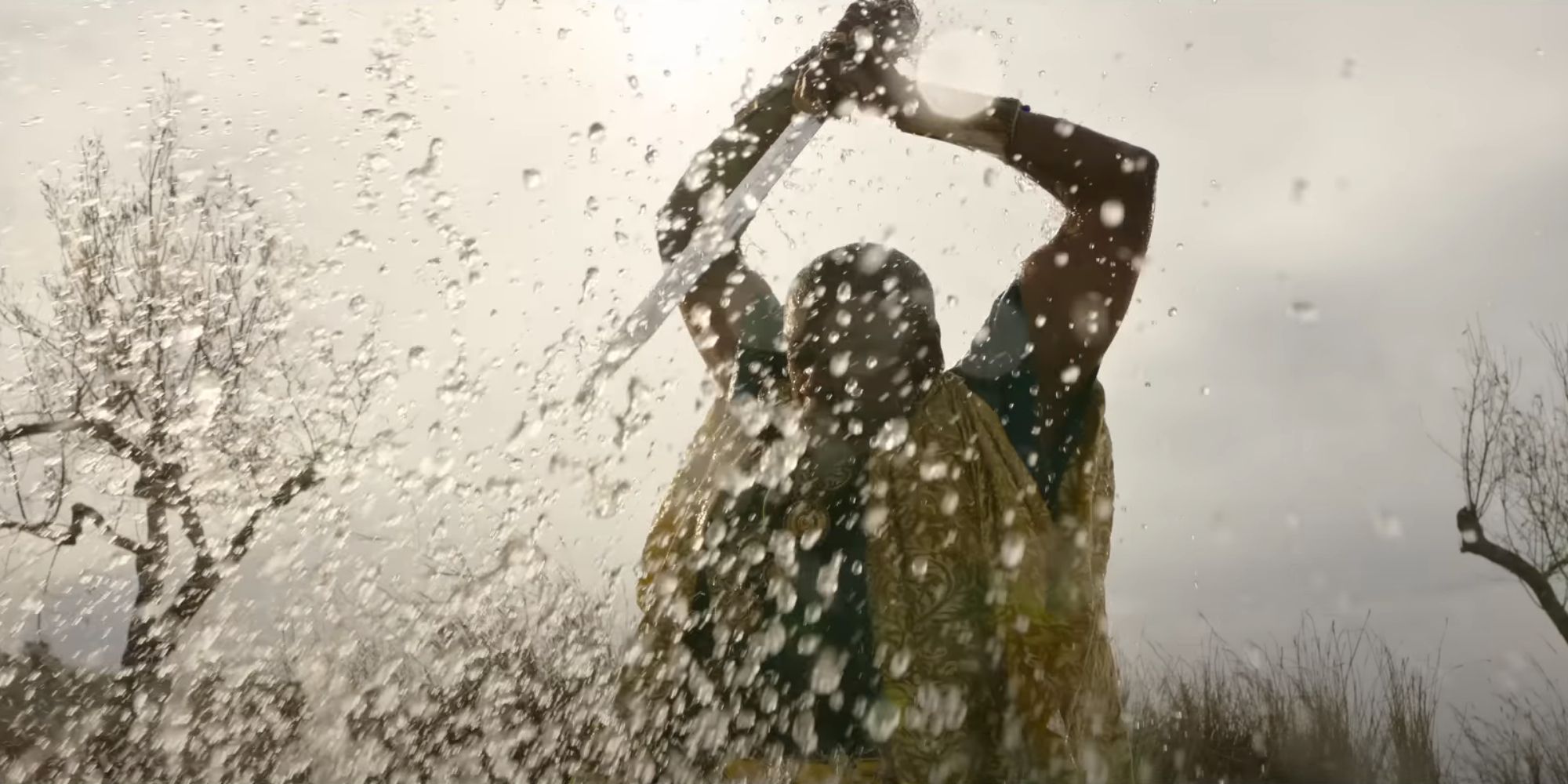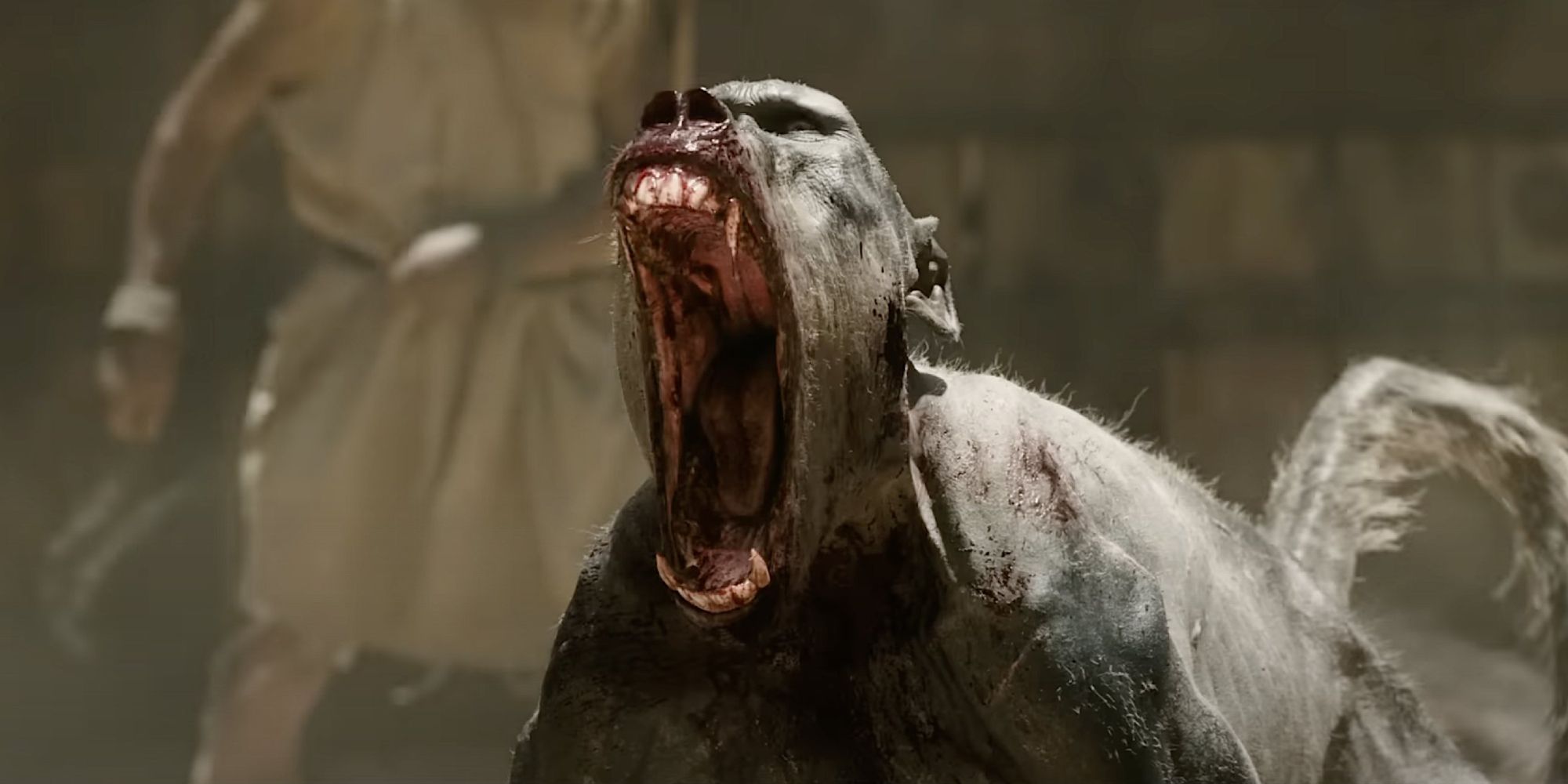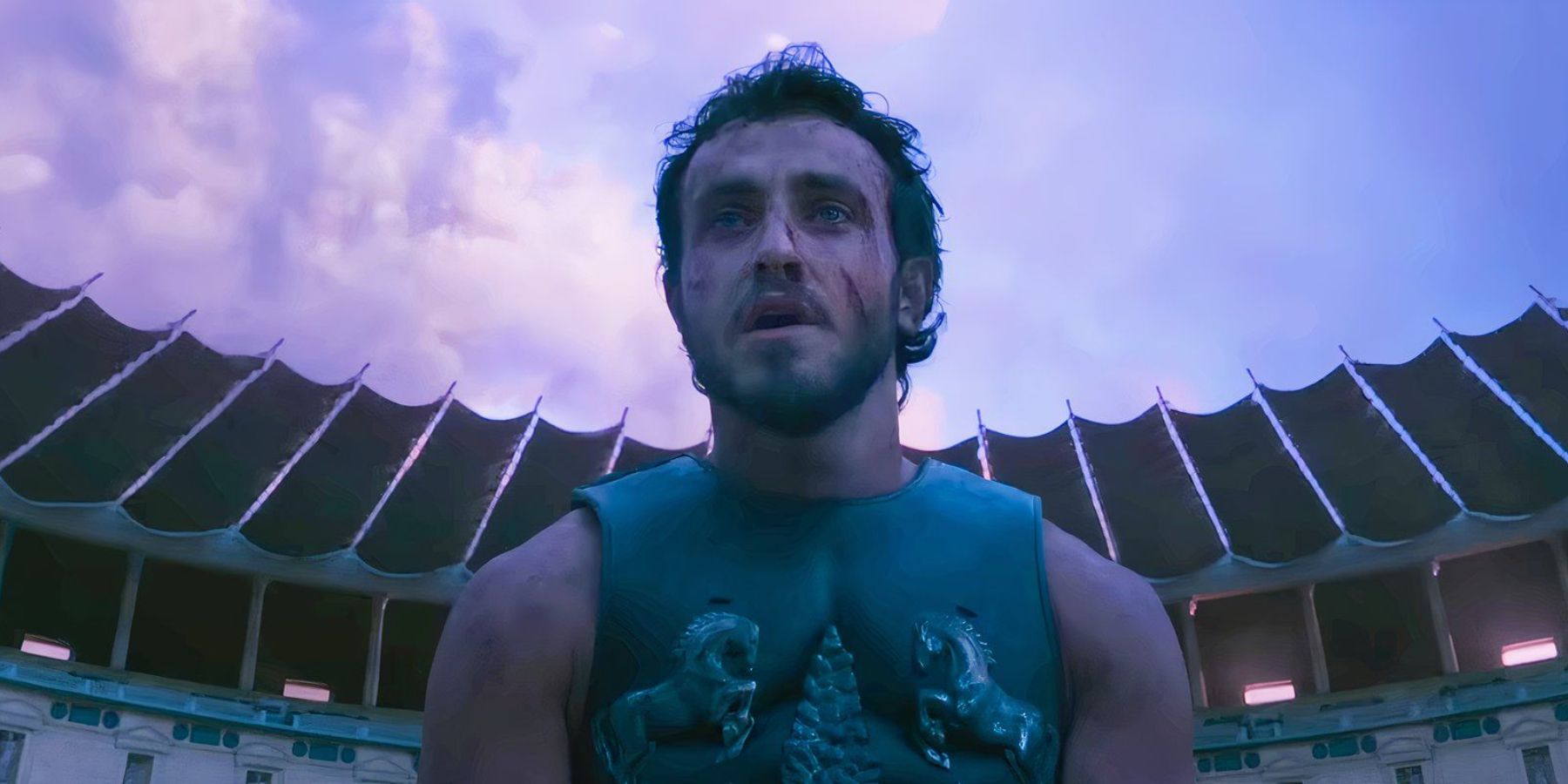An ambitious sequel, considering the acclaim and influence of the first movie, Gladiator II somewhat satisfies when it comes to delivering spectacle and, for better or worse, “more” Gladiator. There is a story of revenge here, a bunch of generally impressive action scenes, political turmoil, and a continuing escalation in conflict that leads to a series of tragic events.
The two movies share these similarities, with Gladiator trumping Gladiator II in terms of action (it’s just a little more exciting and feels fresher there), and when it comes to characters and dialogue, too. But Gladiator II isn’t lacking in a few interesting characters capable of saying memorable things. It’s not going to win any awards for its screenplay, but there are still some good bits of dialogue to be found within.
10 “You embraced everything we taught you. When I die, my ancestors will meet me in the next world. Who will meet you?”
Jugurtha
A relatively minor character whose part in Gladiator II is confined to the first act, Jugurtha is something of a mentor to the film’s protagonist, Lucius (played by Paul Mescal). Much of this occurs off-screen, essentially between the two Gladiator movies, but his strength as a character still shines through, particularly when he discusses the afterlife.
Gladiator had frequent references to a new sort of life or way of being after death, with visions of such a thing seen as well. Gladiator II continues in this tradition, with a focus on the afterlife in dialogue and one fairly striking sequence seen early on. It’s not as strong on the whole fantasy/spiritual/afterlife thing as the original plan for Gladiator II was, but it’s good that it’s still there to some degree.
9 “I always get what I want.”
Macrinus
Historical accuracy is not stuck to strictly in Gladiator II, especially because the first movie already took historical liberties, and the second has to build off an already shaky foundation of fact and fiction. So, yes, Denzel Washington’s character, Macrinus, is inspired by a real-life individual who existed in Ancient Roman times, but those behind Gladiator II – Washington included – played around with what’s understood as the truth a fair bit.
Macrinus might’ve been somewhat cunning and villainous, but that villainy and ability to deceive is really played up in Gladiator II, which is okay, because it ensures Denzel Washington gives quite an enjoyable performance. When he says, “I always get what I want,” you do want to believe him… indeed, he comes super close to getting everything he wants by the film’s end, too.
8 “I’ve become well versed in losing the things I love.”
Lucius
Russell Crowe’s Maximus was a fantastic movie hero because of his journey in the first Gladiator, portraying a man who loses everything yet perseveres, staying true to himself and achieving a victory of sorts by the end, even if it involved dying. His son, Lucius, becomes the central hero in the second movie, and though he’s not quite as compelling, he’s still a pretty solid individual to base a film around.
There’s a case of “like father, like son” here, owing to the fact they both go through similar things and the pair both lose so much, yet have to continue fighting. When Lucius says he’s “become well versed in losing the things” he loves, it’s not an exaggeration or him being over-dramatic. It does sum up the experiences of both him and his father regrettably well.
7 “The people have not seen hope in a long time.”
Lucilla
Lucilla, the mother of Lucius and the former lover of Maximus, is one of the only prominent characters of the first movie to return in a sizable way in the second while being played by the same actor in both (Connie Nielsen). It makes sense, then, for her to be essential to tying the two films together, as well as emphasizing the large amount of time that’s passed between the two.
She discusses the people of Rome being without hope for a very long time, presumably since Maximus defied the Emperor in Gladiator. Similarly, fans of action-packed epics have been without a Gladiator movie in a very long time, too; close to a quarter of a century, to be a little more specific, with the distance between movies being one of the more interesting/intriguing parts of Gladiator II.
6 “I will never be your instrument in this life or the next.”
Lucius
Speaking of tying one Ridley Scott historical epic to its follow-up, Lucius channels his father quite effectively when he begins to resist the violent journey he’s been on, referencing “in this life or the next” while speaking defiantly. Of course, this is reminiscent of Maximus threatening the Emperor after his family was killed and he was sold into slavery, straight up saying: “I will have my vengeance, in this life or the next.”
The Gladiator line is more memorable, but it’s not bad as far as call-backs go, in the second, to have something a little similar. It’s also another part of the movie that continues the whole exploration of the afterlife thing, with Lucius feeling similarly empowered by the knowledge that death in one world won’t necessarily be the end of his existence altogether.
5 “Use your rage in my service and you will have his head.”
Macrinus
A little before he’s entirely a scenery-chewing villain (in a truly obvious way), Macrinus gets some opportunities to establish a level of what could be called, at the very least, questionable morality. He latches onto Lucius fairly quickly, sensing the young man’s anger and ability to decimate both man and beast within the arena, and Macrinus believes him, as such, to be a suitable pawn.
Lucius knows he wants some kind of revenge for losing his wife, and has his sights set on Pedro Pascal’s General Acacius, at least initially. Macrinus says that if Lucius scratches his back (using his rage in his service), then he can scratch Lucius’s back (declaring he’ll have Acacius’s head). He does make good on this promise to Lucius, but other information complicates things considerably, leading to out-of-control bloodshed and a pretty high rate of death for important characters in Gladiator II.
4 “The gates of hell are open night and day; Smooth the descent, and easy is the way: But to come back from hell and view the cheerful skies, In this the task and mighty labor lies.”
Lucius
Again, Lucius might not be as charismatic a leader as his father, Maximus, but he gets some chances to shine with rousing speeches and some capacity to inspire others. Part of this comes from him quoting the Roman poet, Virgil, echoing: “The gates of hell are open night and day; Smooth the descent, and easy is the way.”
They might not be his words, but he sells them nonetheless, and if they appear in Gladiator II, they can technically count as a quote from the movie, too. You have to have some grand-sounding dialogue alongside more traditionally epic sequences – like the action scenes, primarily – which is where this comes in. Maximus probably got the better and more inspiring lines in the first movie, but Lucius, as mentioned before, could be a worse substitute.
3 “This one is interesting. I’ll buy him.”
Macrinus
As he often does, Denzel Washington sells lines that might not sound as impactful coming from the mouth of a lesser actor, doing so right from when his character, Macrinus, is introduced. He owns gladiators in a similar way to Oliver Reed’s character in the first movie, but though that character did become a little more heroic as the film went along, Macrinus becomes more outwardly evil.
So, in hindsight, saying something as blunt as “This one is interesting. I’ll buy him” sounds more ominous once one knows his true motives as a character, but is a kind of amusing line in the moment. Macrinus does indeed believe he owns Lucius, even when Lucius starts resisting the path of revenge he initially felt committed to, leading to the two characters clashing closer to the film’s end.
2 “I know this one…he eats monkeys.”
Viggo
“I know this one…he eats monkeys” is probably better as a non-sequitur than it is when considering the context of the movie, but it does also refer to one of the movie’s more alarming, extreme, and unusual action scenes. There are a few action sequences that prominently feature animals, the first of which sees Lucius and some other gladiators battling enraged – and surprisingly terrifying – baboons.
Lucius doesn’t literally eat a monkey, but he comes pretty close, choosing to intimidate a baboon in combat by biting it on the arm and using the tactic to force it into submission. It’s a key scene in demonstrating the lengths Lucius is willing to go to, when it comes to surviving near-impossible battles, and something that gets him attention from characters like Viggo (a gladiator trainer) and Macrinus.
1 “Speak to me, Father.”
Lucius
The ending of the first Gladiator was simple, moving, and inspiring, all in equal measure, and Gladiator II, while ending differently, tries to strike a similar emotional impact. After all, both movies end with characters thinking about the afterlife while alone in the Colosseum, and the same piece of music even accompanies the endings of both respective films (in defense of that decision, it is great music).
But the ending of Gladiator II, despite the protagonist’s survival, is a little more somber, and one almost gets the sense that Lucius would have rather passed on from one life to the next, as his father did at the end of Gladiator. He tries to reach out, asking his deceased father to quite literally speak to him, but seems as though he could be lost and/or without such guidance. It is pretty effectively moving, and a good scene – and line – to close out the movie with.
Watch in theaters
